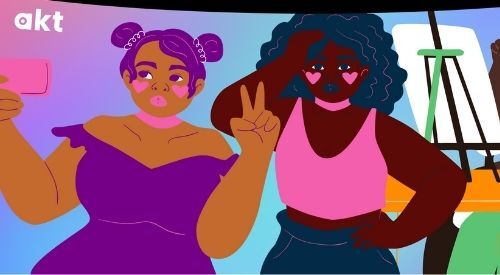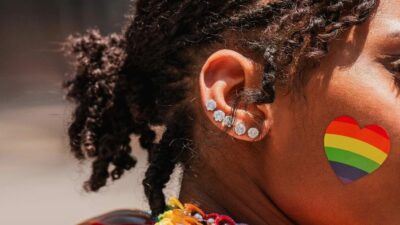Black History Month: the charity sector has a long way to go when it comes to racial equality

In this guest blog Bex Shorunke, Senior Media Officer at akt, details what needs to change in order for the third sector to become a truly inclusive place for Black people and people of colour.
How can the charity sector be more pro-black?
The third sector is having a reckoning about its shortcomings in achieving diversity. The Black Lives Matter movement has spotlighted severe racial discrepancies across all sectors – and charities are no exception.
The #charitysowhite hashtag originally emerged in 2019, however, it has since become emblematic of the ongoing struggle for minorities to be heard. And recently, it’s been a galvanising call to arms, the demands of which are simple: ethnic minority representation at all levels of seniority, respect for the experiences of those impacted and a commitment to disarming institutional racism, within and outside of the sector.
I am a senior media officer at akt. The charity works with LGBTQ+ young people experiencing homelessness, facing familial rejection, or living in a hostile environment. Sadly, the LGBT sector mirrors the same complex and sometimes problematic relationship with black and brown queer people.
Stonewall released a statement detailing that just over half of all black, Asian and minority ethnic LGBT people report experiencing discrimination or poor treatment within their local LGBT network. This rises to three in every five black LGBT people.
Organisations need to give black and brown people a seat at the table.
Unsurprisingly, these experiences carry over into the workplace when it comes to QTIBPOC working in the LGBT charity sector. It is for this reason that organisations need to give black and brown people a seat at the table. Aside from representation itself, it ensures practices are put in place to secure the fair treatment of black and brown people themselves, and their successors.
But what does that look like?
‘Charities need to redefine their diversity and racism policies to be in line with black people’s experiences,’ states Leigh, who is the London Services Manager for akt and the most senior black staff member.
‘They need to listen to current black and POC members of staff. That means paying attention to the impact microaggressions have on minority staff wellbeing and mental health.’
At akt, 66 per cent of the young people we work with are black and POC, rising to 77 per cent in London. Their stories and the barriers they exclusively face are voiced through the media work we do. It is therefore key that the experiences of our staff of ethnic minority backgrounds are valued to the same degree. So, in response to the Black Lives Matter movement, akt took some responsibility to act on racial disparities and put new measures in place.
We set up an Equalities, Diversity and Inclusion committee. Though this was set up prior to BLM, its mission fits into the framework of fighting anti-blackness. EDI strives to implement a culture that is institutionally anti-oppressive, anti-racist, anti-ableist, anti-misogynistic and trans positive.
‘EDIs only work if organisations fully commit to resource and understand the work it takes,’ affirms Leigh.
The EDI’s insightful survey and presentation in which staff were able to voice opinions on diversity, transparency and leadership has proven invaluable. They provided a refreshing and honest critique of processes and interpersonal relations – which may not have been achieved without it. No doubt the EDI’s plans to provide anti-racism training for staff will prove equally impactful. And in a less formal vein, a black and POC network was set up. This provides a safe space for us to connect and seek counsel with one another – a priceless necessity.
The next step in combatting racism was to agree on a set of commitments for each team to adhere to. These promised to prioritise the needs of black and brown queer folk and champion their work.
For the Communications team, these commitments meant ensuring at least 65 per cent of any paid content creators we collaborated with would be black or POC, supporting grassroots volunteer groups tackling racism or transphobia in a communications capacity, and engaging black and POC voices in our public affairs and policy implementation work.
This sentiment is also being channelled into our work for Black History Month. We are collaborating with black creatives such as Shah, Char Bailey and Li Benedetti. They will be teaching their audience about the foundations of storytelling within a podcast framework, speaking about the benefits of self-care during this time, and there will even be a much anticipated voguing masterclass. Black History Month also presents a chance for staff to reflect upon their lived experience, and where possible, use that for the benefit of inspiring others.
There is still much work to be done.
So there is progress being made at akt, but there is still much work to be done. This October will see charities observe the triumphs of black people with a renewed curiosity for 31 days. However, the dedication required by the third sector – by the LGBT sector – to disarm racist practices and equalise the playing field will take years – and some.



